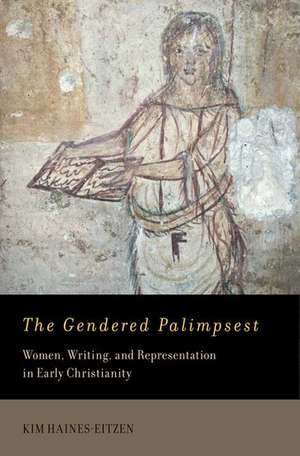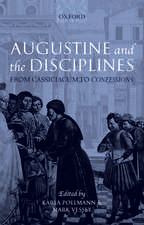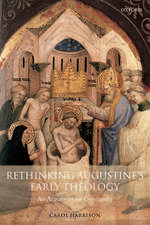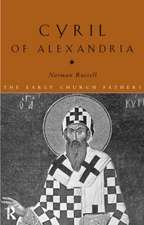The Gendered Palimpsest: Women, Writing, and Representation in Early Christianity
Autor Kim Haines-Eitzenen Limba Engleză Hardback – 8 dec 2011
Preț: 522.45 lei
Preț vechi: 748.37 lei
-30% Nou
Puncte Express: 784
Preț estimativ în valută:
99.97€ • 104.66$ • 82.72£
99.97€ • 104.66$ • 82.72£
Carte tipărită la comandă
Livrare economică 26 martie-01 aprilie
Preluare comenzi: 021 569.72.76
Specificații
ISBN-13: 9780195171297
ISBN-10: 0195171292
Pagini: 214
Ilustrații: 11 b&w halftones
Dimensiuni: 229 x 160 x 23 mm
Greutate: 0.52 kg
Editura: Oxford University Press
Colecția OUP USA
Locul publicării:New York, United States
ISBN-10: 0195171292
Pagini: 214
Ilustrații: 11 b&w halftones
Dimensiuni: 229 x 160 x 23 mm
Greutate: 0.52 kg
Editura: Oxford University Press
Colecția OUP USA
Locul publicării:New York, United States
Recenzii
The book is written in a lively and witty style which engages the reader and draws her into the world which Haines-Eitzen describes.
Notă biografică
H. Stanley Krusen Professor of World Religions and Professor of Early Christianity; Chair of the Department of Near Eastern Studies and Director of the Religious Studies Program at Cornell University













